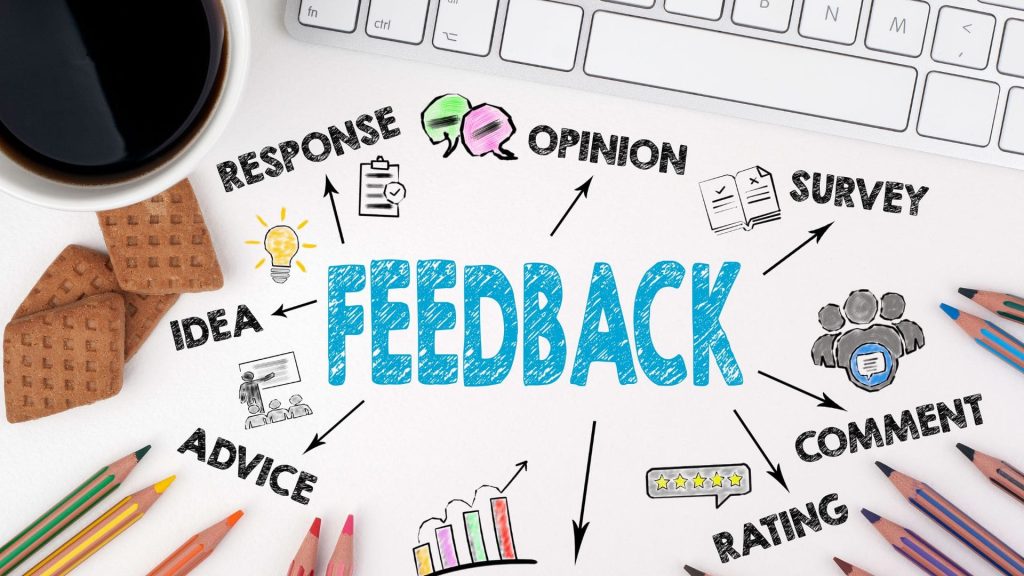
How Founders Can Cultivate Emotional Intelligence for Effective Leadership
In the competitive business world, the most successful founders are often those who possess not only sharp intellect and visionary ideas but also a high level of emotional intelligence (EQ). While traditional leadership skills like strategic thinking and financial acumen are critical, emotional intelligence has become a pivotal factor in effective leadership.
Leaders who understand their emotions and the emotions of others can foster stronger relationships, navigate challenges with composure, and inspire loyalty among their teams.
Founders, in particular, are faced with high-pressure decisions, resource constraints, and team dynamics that can be influenced by their emotional state and leadership style.
Therefore, developing emotional intelligence is no longer optional; it’s a necessity for those who aim to lead successful organizations.
In this blog, we’ll explore why EQ is vital for founders, how to build it, and how it can drive business success.
What is Emotional Intelligence?
Why is this balance so crucial?
The truth is that founders who neglect their personal growth risk burning out, losing touch with their vision, or making decisions that don’t align with their core values.
Business success is intrinsically linked to personal growth – both are essential for long-term sustainability.
When things go well, you need to grow fast to equip yourself. During the bad business days, founders need to deal with them with their judgment and perspective. Both require personal growth to make the right and timely professional decisions.
The founder’s personality cannot be a blocker while the business grows. Here‘s why the balance is so important.
Why Emotional Intelligence is Essential for Founders
Daniel Goleman, in his book “Emotional Intelligence: Why It Can Matter More Than IQ.” highlighted the importance of emotional intelligence in leadership. Goleman believes that people with EQ are better at navigating interpersonal dynamics. Managers can implement this to reduce the need for micromanagement.
Leadership involves five key components that are the aspects of EQ:
- Self-awareness
- Self-regulation
- Motivation
- Empathy
- Social skills.
These aspects of EQ are crucial for founders because they not only enable them to manage their personal emotions but also allow them to build meaningful relationships, communicate effectively, and create a positive work environment.
Goleman’s research showed that leaders with high EQ tend to outperform those with high IQ in many aspects of leadership, such as team management and conflict resolution. The book highlighted that self-awareness and empathy are vital to leadership effectiveness—skills that can be honed through practice and reflection.
Founders are often the driving force behind their organizations, setting the vision, making critical decisions, and influencing company culture. However, leadership goes beyond strategy and execution; it’s about managing people, navigating crises, and fostering a workplace that supports growth. Founders who cultivate emotional intelligence can better balance the demands of leading with empathy, which ultimately leads to higher engagement and productivity among employees.
Having a high EQ allows founders to manage the stress of decision-making and uncertainty. They are more attuned to the emotions of their employees, which helps them offer support during difficult times and motivate teams through challenges.
This, in turn, creates a company culture that is not only resilient but also collaborative and inclusive.
Key Emotional Intelligence Skills for Founders
To be effective in leadership, founders must focus on several key emotional intelligence skills. The most important of these are self-awareness, empathy, and relationship management. Let’s break down each skill and how founders can apply them in their leadership roles:
- Self-Awareness
Self-awareness is the ability to recognize and understand your emotions and how they influence your thoughts and behavior. Founders who are self-aware can make decisions that align with their values and avoid reactive behavior during stressful situations. They are more mindful of how their actions and moods affect their teams.
For example, when a founder is feeling stressed due to external factors, self-awareness allows them to pause and assess their emotional state before reacting. This prevents hasty decisions, allowing the founder to approach the situation thoughtfully and with clarity, avoiding impulsive leadership moves that might harm the team’s morale.
- Self- Regulation
Self-regulation enables founders to manage their emotions effectively, particularly when under pressure. During crises, such as a product recall, maintaining composure can reassure the team and stakeholders, transforming potential setbacks into opportunities for improvement.
This ability to stay calm fosters a more resilient organizational environment. A composed founder has the ability to influence the team. \
Self-regulation leads to developing resilience. Founders recover from the setbacks quickly. Flexibility is another highlight of it. Founders can successfully adopt changes, and this is transmitted to the whole organization.
- Motivation
What keeps an organization going amid the crisis as well is the self-motivation of the founder. Founders who are internally motivated tend to inspire their teams more effectively. Appreciating the culture of innovation and commitment motivation is the compelling trigger.
Setting high goals and motivation keeps the founder optimistic and encouraged. They exhibit an optimistic disposition, lifting the morale of their team.
This passion not only enhances personal fulfillment but also aligns the team’s efforts with the company’s vision.
- Empathy
Empathy is the ability to understand and share the feelings of others. It’s one of the most essential EQ skills for founders because it fosters trust and connection with employees. An empathetic leader doesn’t just recognize the emotions of others; they actively engage with and respond to them, making employees feel heard and valued.
For example, when an employee is facing a personal challenge, an empathetic founder will listen actively and offer support that suits the employee’s needs, whether that’s providing flexible working hours or offering words of encouragement. This strengthens the leader-employee relationship, boosts employee morale, and fosters loyalty.
- Social skills
Social skills are more about communication at the workplace. Encouraging honest dialogue helps address concerns and build trust among team members. Techniques such as regular one-on-one meetings, team feedback sessions, and anonymous surveys can provide valuable insights into employee experiences.
Creating a safe space where employees feel comfortable sharing their thoughts and concerns is vital. This openness helps address issues early and prevents misunderstandings. Leaders should model transparent communication to set the tone for the entire organization.
The hybrid work environment limits one-to-one interaction among team members. According to Yoshie & Julia Milner, engaging in open communication is essential more than ever.
Benefits of Emotional Intelligence in Leadership
Emotional intelligence is a powerful tool for founders. When applied correctly, it can produce several significant benefits for both the leader and the organization. Here are just a few of the many advantages:
- Improved Team Morale and Engagement
When founders lead with empathy and self-awareness, employees are more likely to feel respected, understood, and motivated. This contributes to improved morale and engagement, which are crucial factors for high-performing teams.
Employees who feel emotionally supported are more likely to go above and beyond in their work, resulting in increased productivity and innovation.
- Better Conflict Resolution
In any organization, conflict is inevitable. However, founders with high EQ are better equipped to handle these situations calmly and constructively.
Emotional intelligence can help the founders to acknowledge emotions on both sides. Through Facilitating productive dialogue, founders can resolve conflicts before they escalate.
This ensures that the team remains focused and cohesive, maintaining a positive workplace environment.
- Higher Employee Retention
Founders with emotional intelligence are likelier to create a work environment where employees feel safe, valued, and motivated. This sense of belonging can increase job satisfaction and loyalty, ultimately reducing turnover rates. Statistics from Business Solver revealed that 70% of employees feel more motivated in an empathetic workplace.
Employees are more likely to stay in a company where they feel their leader genuinely cares about their well-being and professional growth.
- Relationship Management
Relationship management involves using emotional intelligence to influence, communicate, and positively resolve conflicts. Founders with strong relationship management skills can manage teams effectively, navigate disagreements, and foster collaboration, which is critical to building a thriving company culture.
For instance, during a heated team discussion, a founder with strong relationship management skills will mediate, encourage open dialogue, and help the team reach a constructive resolution. This ensures that conflicts don’t derail progress and that team members remain focused on shared goals.
Developing Emotional Intelligence as a Founder
While some aspects of emotional intelligence may come naturally, most of it can be developed with time and effort. Here are some practical steps founders can take to enhance their EQ:
- Practice Mindfulness
Mindfulness is an effective tool for developing self-awareness. By practicing mindfulness techniques, such as meditation or breathing exercises, founders can improve their emotional regulation and become more aware of their reactions to stressors. This enables them to respond to challenges with greater clarity and composure.
- Seek Feedback Regularly
Another way to improve emotional intelligence is to seek feedback from employees and peers. Founders should create a culture of feedback where team members feel comfortable sharing their perspectives on leadership styles and emotional interactions. Regular feedback can provide insights into areas where the founder may need to improve and can help them adjust their behavior for the betterment of the team.
- Engage in Active Listening
Active listening is a key component of empathy. Founders should make an effort to truly listen to their employees without interrupting or judging. This shows respect for their opinions and helps build trust. When employees feel heard, they are more likely to open up and contribute to the success of the company.
More Articles to Read
Emotional intelligence is more than just a “soft skill”—it’s a strategic asset that can make all the difference in leadership effectiveness. Founders who invest in developing their EQ will build stronger teams, create a positive company culture, and navigate challenges with greater resilience.
As highlighted in Emotional Intelligence 2.0 by Travis Bradberry, EQ can be developed with practice. Whether through mindfulness, active listening, or seeking feedback, the steps founders take to enhance their emotional intelligence will ultimately help them lead their organizations more effectively.
In a world that increasingly values emotional acuity as much as strategic thinking, EQ is no longer optional—it’s essential for sustainable success.




